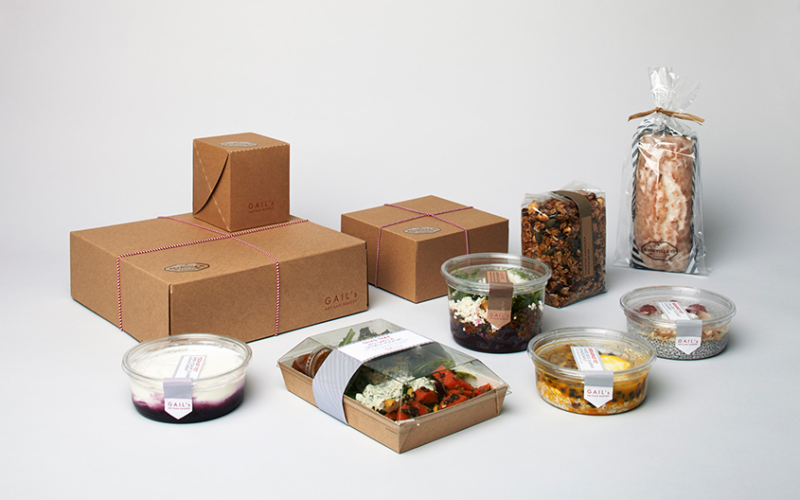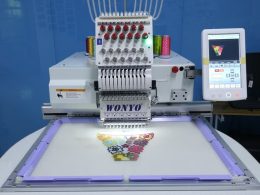In the evolving food industry, packaging is no longer just about holding food; it is a critical part of the customer experience, brand identity, and product safety. Custom food packaging is becoming an essential investment for businesses looking to differentiate themselves, communicate their values, and ensure food reaches customers in perfect condition.
This article will explore the importance of custom food packaging, its benefits, types, materials, and how it helps food businesses grow in a competitive market.
What Is Custom Food Packaging?
Custom food packaging refers to any packaging designed specifically for a business’s food products with unique branding elements such as logos, colours, slogans, nutritional information, or legal disclaimers. Unlike generic packaging, custom packaging is tailored to the product and company’s identity, creating a cohesive and memorable experience for customers.
This can include everything from printed takeaway boxes and coffee cups to labels, wrappers, and eco-friendly containers designed to suit the product and enhance brand recognition.
Why Custom Food Packaging Matters
Building Brand Identity
One of the most significant advantages of custom food packaging is the ability to build a strong, recognizable brand. Packaging often serves as the first tangible interaction a customer has with your business. Well-designed packaging that reflects your brand personality helps create a lasting impression and encourages repeat purchases.
For example, a bakery with beautifully branded boxes and labels will be more memorable than one that uses plain, generic packaging. Over time, this consistent brand presentation increases customer loyalty and trust.
Marketing and Communication Tool
Custom packaging acts as a silent but powerful marketing tool. It can convey messages about your business values, promote new products, and encourage customer engagement. Including social media handles, QR codes linking to recipes or promotions, or calls to action like “Share your experience with us!” helps turn packaging into an interactive platform.
This marketing potential is amplified when customers share photos of your packaging on social media, providing free organic exposure.
Enhancing Product Safety and Freshness
Food packaging’s primary function is to protect the product from contamination, damage, and spoilage during transportation and storage. Custom packaging can be designed with features such as tamper-evident seals, airtight closures, or moisture-resistant materials, which help maintain food quality and safety.
Businesses can also include allergen warnings, nutritional information, and ingredient lists clearly printed on the packaging, ensuring compliance with food safety regulations and transparency with consumers.
Supporting Sustainability Goals
With rising environmental concerns, consumers increasingly prefer brands that use sustainable packaging. Custom food packaging offers businesses the opportunity to choose eco-friendly materials such as recyclable paper, biodegradable plastics, or compostable trays, helping reduce environmental impact.
Using custom packaging to communicate sustainability efforts can enhance brand reputation and attract environmentally conscious customers.
Common Types of Custom Food Packaging
Takeaway Boxes and Containers
These are widely used in restaurants, fast food outlets, and meal delivery services. Custom takeaway boxes are made from sturdy, grease-resistant materials and can be branded with logos and product information.
Printed Coffee Cups and Beverage Holders
Cafés, coffee shops, and mobile vendors benefit greatly from branded cups. Double-walled paper cups with custom prints not only keep drinks warm but also provide a walking advertisement for the brand.
Bakery Boxes and Pastry Packaging
Custom bakery boxes often feature window panels that showcase the product inside. These boxes are perfect for cakes, cupcakes, cookies, and pastries, providing an elegant presentation that attracts customers.
Wrappers and Labels
Sandwich shops, delis, and snack producers use printed wrappers or labels to protect food items while reinforcing brand identity. Custom labels also provide essential product information and can be used for jars, bottles, and packaged snacks.
Eco-Friendly Packaging Options
Many businesses are shifting to materials like kraft paper, sugarcane pulp, or bamboo fiber for trays, bowls, and containers. These materials are biodegradable or recyclable, supporting zero-waste initiatives and appealing to green-minded consumers.
Choosing the Right Materials for Custom Food Packaging
Selecting appropriate materials is crucial for packaging functionality and brand positioning.
Paper and Cardboard
Paper-based packaging is popular due to its versatility, recyclability, and print quality. It can be coated or laminated to resist grease and moisture. Kraft paper offers a natural, rustic look often associated with organic or artisanal products.
Plastics
While traditional plastics face criticism due to environmental impact, biodegradable plastics such as PLA (Polylactic Acid) provide an alternative that breaks down more easily. Clear plastic packaging also offers excellent product visibility.
Biodegradable and Compostable Materials
Materials derived from natural sources, such as bagasse (sugarcane fiber), wheat straw, and bamboo, are becoming increasingly popular. They offer strength and moisture resistance without the ecological footprint of conventional plastics.
Designing Effective Custom Food Packaging
Good design balances aesthetics with functionality.
-
Brand Consistency: Use your brand’s colours, fonts, and logos consistently to strengthen recognition.
-
Clear Information: Include ingredient lists, allergen warnings, preparation instructions, and expiry dates to meet legal and consumer needs.
-
User-Friendly: Packaging should be easy to open and close, stackable, and appropriately sized to avoid waste.
-
Innovative Elements: Consider adding QR codes, cutouts, or windows to enhance customer interaction and product visibility.
Benefits for Different Food Businesses
-
Restaurants and Takeaways: Custom packaging can keep food fresh during delivery and create a branded unboxing experience.
-
Bakeries and Confectioners: Attractive boxes and wrappers elevate the product’s perceived value.
-
Meal Prep Companies: Packaging that displays nutritional info and reheating instructions builds trust and convenience.
-
Coffee Shops: Printed cups are a moving billboard, increasing brand exposure throughout the day.
-
Farmers and Producers: Custom labels add professionalism to homemade or artisanal products.
How to Choose a Custom Food Packaging Supplier
Selecting the right supplier involves more than just price:
-
Customization Options: Can they print full-colour logos, custom sizes, and unique designs?
-
Minimum Order Quantities (MOQs): Look for suppliers who accommodate small batch orders, especially for startups.
-
Lead Time: Fast turnaround is important to meet demand cycles.
-
Compliance: Packaging should meet local and international food safety and environmental regulations.
-
Sustainability Certifications: Verify claims of eco-friendly materials with certifications such as FSC or BPI.
Trends Shaping the Future of Custom Food Packaging
-
Smart Packaging: Embedded sensors that monitor freshness or temperature.
-
Minimalist Design: Simple, clean designs that communicate quality and transparency.
-
Personalization: Using variable data printing to offer customers personalized messages or promotions.
-
Increased Use of Recycled Materials: Meeting consumer demand for circular economy products.
Conclusion
Custom food packaging is more than a container; it’s a powerful tool to build your brand, communicate with customers, and protect your products. By choosing the right materials, design, and supplier, food businesses can enhance customer experience, promote sustainability, and boost sales.
Whether you are launching a new product or looking to refresh your brand, investing in custom food packaging is a strategic decision that pays off with loyal customers and increased market visibility.












